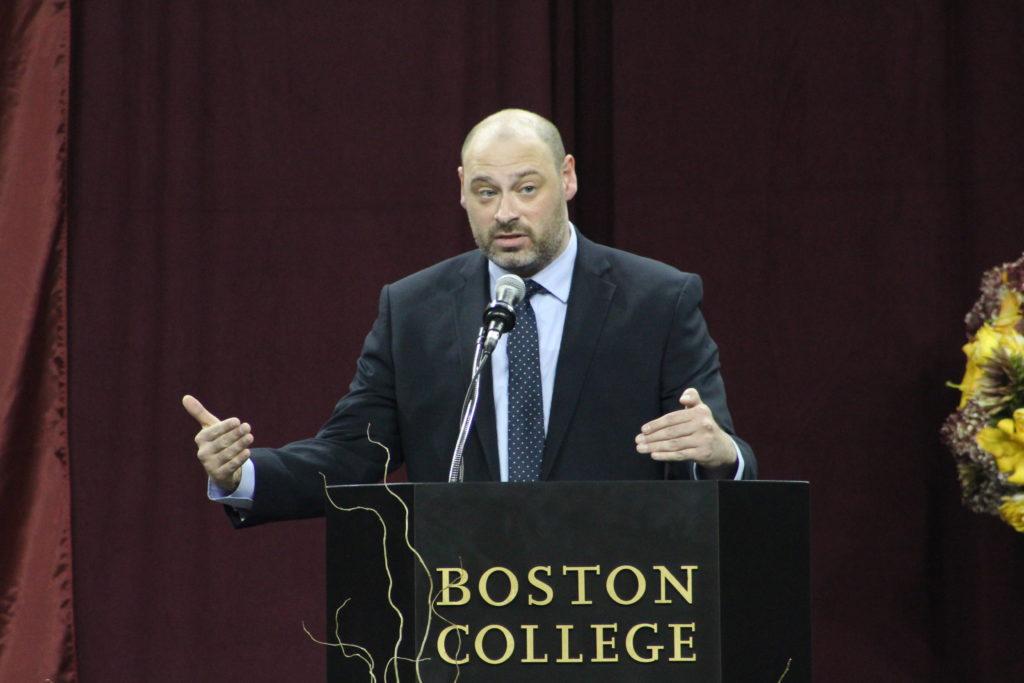Author Lev Golinkin, BC ’03, addressed the Class of 2021 at the 13th annual First Year Academic Convocation, telling Boston College’s freshmen about the major conflict his class faced over a decade ago—the construction of a fence around the Mods.
The event began with a procession of the freshman class down Linden Lane and was followed by a keynote address by Gonlinkin in Conte Forum, centered around the theme “Conversations in the First Year.”
University President Rev. William P. Leahy, S.J. was the first to speak, describing his hopes for the Class of 2021.
“What I hope you might also add to this is that you found BC caring, a caring place,” he said. “You don’t have to endure what may be some trying moments alone.”
Golinkin began his keynote address by explaining his feelings about being back on campus.
“I still remembered when Michael [Sacco] called and said they were considering having me at BC,” Golinkin said. “I said, um, ‘Why?’ And he said … ‘There’s a lot of strong impressive people [here] all the time, and this year we just want to dial things back.’”
In his book A Backpack, a Bear, and Eight Crates of Vodka, Golinkin discusses his family’s history as refugees. As a Jewish family in Kharkov, Ukraine, the Golinkins faced a barrage of anti-Semitism. Fearing the closing of American borders to Soviet Jews, Golinkin’s family left Ukraine and began a long journey to the United States.
Golinkin said the people who helped his family enter the U.S. and eventually become citizens were not the grand figures of his memory, but were average people.
“As I check out all of these people [who helped my family], I kept expecting to find saints,” he said. “All of them are pretty ordinary people, but they still managed to do miracles for us.”
Golinkin encouraged the Class of 2021 to accept the feeling of discomfort and said that perfection is not the most noble pursuit.
“If you look back in December and think ‘I achieved everything…’ that probably means you spent the entire semester on crystal meth,” he said. “Three and a half months, that’s too much.”
He then shifted to his second point—the power of this generation. In Golinkin’s opinion, his generation was afforded great comfort during its college experience, with most major conflicts happening overseas.
In fact, the main point of advocacy during his time at BC was to fight the construction of the now normalized fence around the Mods, a very controversial topic at the time.
“I don’t want to say we overreacted, because that’s not strong enough,” he said. “It was like the BC administration announced that they were going to kill and eat the last panda on Earth.”
Golinkin compared this to the issues faced by the incoming freshmen, both in the U.S. and abroad, to express his belief that the potential impact of young people has increased immensely.
His generation, he said, looked to the past for milestones of social action. The current generation is experiencing such a time now, he said.
“The last thing I want to remind you is that you have that power … use that power,” he said. “And please use it wisely.”
Featured Image by Jake Catania / Heights Staff



















